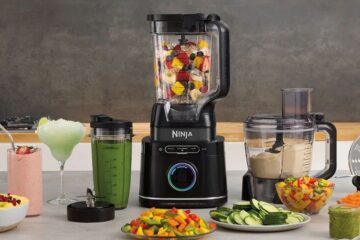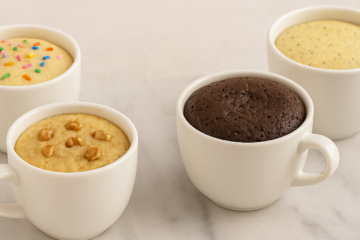Healthy eating is an essential part of living a healthy lifestyle. Eating a nutritious and balanced diet can help keep you both physically healthy and mentally healthy. Everybody knows that we are meant to eat 5 portions of fruit or vegetables a day, but there are many more healthy diet habits you can adopt to keep you feeling good. This post will outline some of the best ways to ensure you create a healthy diet for yourself, which is both enjoyable and sustainable.
Incorporate all the food groups
There are five main food groups which everyone should incorporate in their diet. These are fruits and vegetables, proteins, grains, carbohydrates, and dairy. Each group has its own benefits and provides you with different nutritional value.
Fruits and Vegetables
Fruits and vegetables are high in vitamins, minerals, and fibre. Eating fruits and vegetables can keep you healthy and prevent the development of heart disease and cancer. Oranges, bananas, and apples are all high fibre foods which are great for you to eat. It is recommended that you should eat 5 portions of fruit and vegetables a day however if you can eat more than that you should too.
Protein
The next food group is protein. This is imperative in your diet as protein assists in muscle growth and repair. The amount of protein which should be daily varies from person to person, however a rough guideline is that you should eat 0.8 grams of protein for each kilogram of your weight. For example, if you weighed 80 kilograms, you should be aiming to consume approximately 64 grams of protein. If you are interested in gaining muscle mass, your protein intake should be increased and should account for 20 – 35% of your daily calorie intake. There are many different protein sources such as chicken, steak, and fish. If you are vegetarian or vegan, you can opt for meat free protein sources such as tofu and tempeh. There are also many options available such as quorn products which can be eaten if you do not consume meat.
Grains
Grains and wholegrain foods are also important for your health. They contain high levels of fibre which aid in keeping you feel fuller for longer. Benefits of eating wholegrain foods have been linked to prevention of diabetes, heart disease and other health problems. The most common types of grains are corn, rice, and wheat. Since grains keep you full, they are great to incorporate to the diet of someone who has the goal of losing weight. Some examples of wholegrain foods are brown rice, oats, wholewheat bread and quinoa. If you wish to consume more wholegrain foods, try to replace existing foods with these. For example, instead of a sugary cereal for breakfast, opt for a bowl of oatmeal, and if you consume a large amount of white rice, switch to brown rice of quinoa.
Carbohydrates
The next food group is carbohydrates. Many people assume that when they are eating healthy that they need to cut carbohydrates out or follow a low carb diet, however, it is important everyone eats carbs in moderation as they are a great source of energy which we all need to help us keep healthy. The carbohydrate group should account for about one third of our diets and help us to get all the nutrients you keep healthy. Carbohydrate based foods can be incorporated to every meal in the form of potatoes, rice, bread, pasta and more. They are an easy way to increase your energy levels throughout the day.
Dairy
The final food group you should include in your diet is dairy (or dairy alternatives). These foods contain protein to help you maintain and repair muscles, as well as keeping you full. They also include a good amount of calcium which helps with bone health. These products include milk, yoghurt, cheese and fromage frais. However, we know many people do not consume animal products for health, ethical or intolerance related reasons. Many dairy free alternatives exist such as almond/soya/coconut milk, soya yoghurts, and lactose free cheese. These have all been developed to still include protein, calcium, and other key nutrients.
Those are the main types of food groups which should be consumed to create a healthy diet for yourself. Fuelling your body with the correct nutrients can keep you energised, help you maintain your body and not gain weight and keep you full.
Enjoy the foods you love in moderation!
With all, is it important to not restrict yourself when eating. Allowing yourself to have your favourite treats such as chocolate or crisps, in moderation will help you maintain your healthy eating. Attempting to cut out all ‘unhealthy’ foods from your diet is unsustainable and creates restrictive behaviours which may end in you overindulging in foods later on. No foods should be classed as ‘bad’ foods as anything is okay in moderation, and important to keep a positive relationship with food!
Overall, this has been our guide on how to eat healthy. We hope that our suggestions for each food group will help you find some suitable options for your lifestyle. We have found many healthy cookbooks which may also assist in you making the move to a healthier lifestyle. These books all have a variety of breakfast, lunch and dinner options. Some even including healthy dessert ideas to help satisfy a sweet craving! Leave a comment if you have any healthy delicious recipe ideas.


